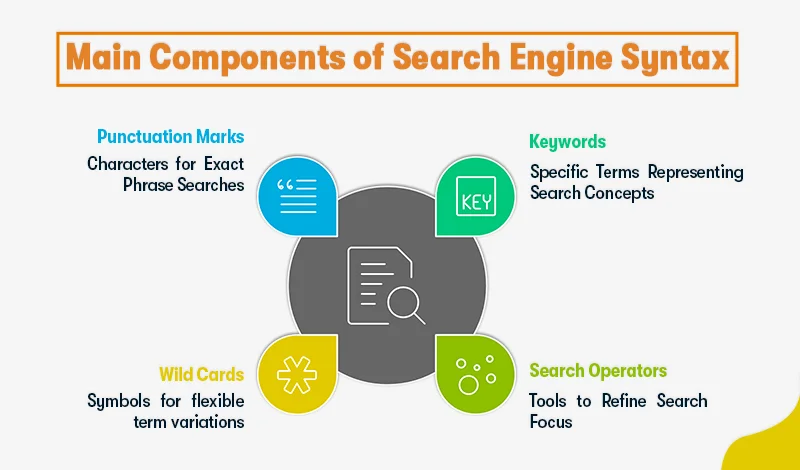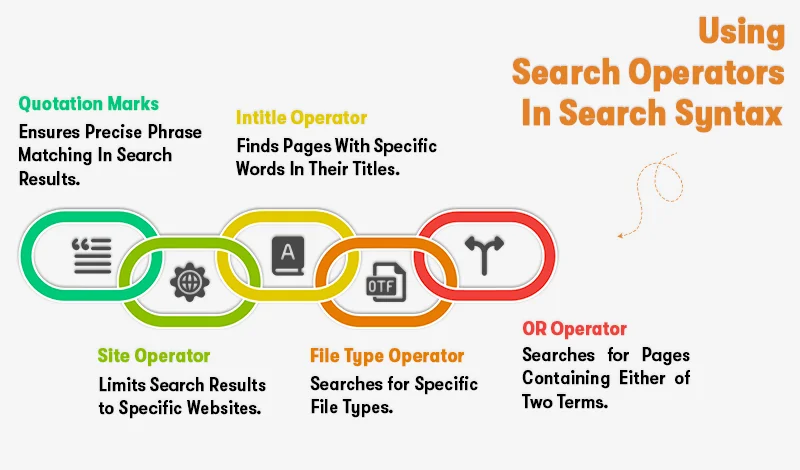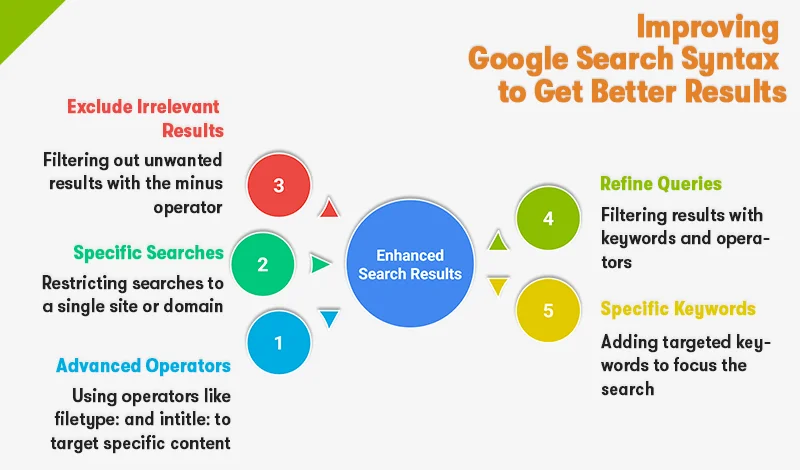Understanding search syntax makes it easier to find the information you want quickly and clearly on the internet. It helps you use special words and symbols called search operators to narrow down your results and avoid wasting time on irrelevant content.
In this article, We’ll show you how to use searching syntax and operators to make your online searches more targeted and efficient.
What is Search Syntax?
It is a strategy for phrasing your search queries to improve the quality of the results. Search syntax uses keywords combined with special symbols or quotation marks to search for exact phrases. By following specific rules, it helps filter and target information effectively. It’s commonly used in search engines and data information systems.
Importance of Search Syntax
Google search site syntax helps you find accurate information faster and avoid unrelated results. It makes your searches more focused and effective.
- Ensure greater accuracy by searching for exact phrases using quotation marks.
- Boolean operators like AND, OR, and NOT help you control and shape your search by linking keywords.
- Search within specific areas like titles or authors to focus on particular parts of the information.
- Use wildcards and truncation to include different spellings or word forms in your search.
- Learning how to write effective search queries helps you find precise information quickly and makes searching easier.
Main Components of Search Engine Syntax

Understanding the key elements of google search syntax helps you build precise and effective search queries to find exactly what you need.
1: Keywords
Keywords form the base of any search query. They represent the specific terms or concepts you want to find information about. Picking the right keywords helps you find better results, faster.
2: Search Operators
Using AND, OR, and NOT operators correctly is the secret to better search queries. These help you focus your search and find more relevant information.
3: Wild Cards
It’s a special symbol used in searches to replace missing or unknown letters in a word. By using wildcards like the asterisk (*) or question mark (?), you can find multiple variations of a term and make your search more flexible and effective.
4: Punctuation Mark
Characters such as quotation marks (” “) allow you to search for exact phrases, while parentheses ( ) help group terms and control the order in which the search engine processes them.
Using Search Operators in Search Syntax

Searching syntax makes your searches smarter, so you spend less time scrolling and more time finding what matters.
-
Quotation Mark
When you use quotation marks, you can find pages that contain the exact phrase in the right order. Example: “limited edition sneakers” returns pages with that exact phrase.
-
Site
You can limit your search results to specific websites or domains by using this operator. For example, searching site:wikipedia.org climate change will show only Wikipedia pages about climate change.
-
Intitle
Use this operator to search for pages with the exact words in their titles. Searching intitle:recipe will show pages with “recipe” in their titles.
-
File type
Use this operator to search for specific types of files like PDFs, DOCs, or PPTs. For example, filetype:pdf will return only PDF documents related to your query.
-
OR
Use this (in uppercase) to search for pages that include either one term or another. For example, vacation OR holiday will find pages containing either word.
Improving Google Search Syntax to Get Better Results

Refining your search queries with specific keywords and operators can dramatically increase the accuracy and relevance of your results.
1: Advanced Operators
Using advanced search operators like filetype: and intitle: helps you narrow down search results quickly and accurately. These tools let you target specific websites, file types, or page titles.
2: Include Specific Searches
With the site: operator, you can easily restrict your search to a single site or domain for more precise results. This is especially useful when searching trusted sources or when you need information from a particular site only. It helps filter out unrelated content and improves result relevance.
3: Exclude Irrelevant Results
To filter out unwanted results, use the – (minus) operator in your search. For example, searching web design -courses excludes pages about web design courses, helping you focus only on relevant content.
4: Refine Queries
Search results can be filtered using specific keywords and operators. Tools like minus sign (-) help you focus on relevant content and avoid unrelated information, making your searches faster and more accurate.
5: Use Specific Keywords
Adding targeted keywords focuses your search and improves the relevance of results. For example, searching “healthy recipes low-carb” helps find targeted information quickly. Balancing general and precise terms ensures the best results.
Conclusion
Understanding basic google search syntax tricks can make it much easier for beginners to find accurate information online. This guide introduces key techniques like phrase matching, word exclusion, and site-specific searches, tools that help users search faster and more effectively. These search operators are valuable for both academic research and everyday browsing. With a little practice, they can significantly improve your ability to locate the right information. Start using them today to work smarter, not harder.


